Aidt, T. S., Lacroix, J., & Méon, P.-G.
American Economic Journal: Economic Policy (2025).
Abstract. We examine how connections shaped transitional justice during France’s post-WWII democratic transition. Parliamentarians who had supported the Vichy regime faced a two-stage purge process involving two courts. Using a difference-in-differences strategy, we find that Law graduates – an influential group with ties to one of the courts – had a 10 to 14 percentage point higher acquittal rate. We analyze 17,589 documents in individual defendants’ files to explain this difference. According to this analysis, indirect connections – connections through third parties – enabled transmission of information to the judges, highlighting how connected elite groups can navigate transitions despite institutional safeguards.
Connections During Democratic Transitions: Insights from the Political Purge in Post-WWII France
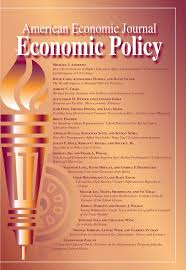
Zaytseva, A., Verger, P., & Ventelou, B.
Health Services Insights, Vol. 18 (2025).
Abstract. Background: Integrated primary care teams remain a debatable policy in family medicine that could be a convenient response to French shortages in medical density. Objectives: To analyse how general practitioners (GPs) respond to insufficient GP supply in their practice area in terms of quantity and quality of care, and how this response is mediated by enrolment in integrated primary care teams – multi-professional group practices (MGPs). Methods: We used structural equation modelling on 3 representative cross-sectional surveys (2019-2020) of 1209 French GPs. Quantity and quality of care were approximated by latent variables comprising respectively GPs’ demand absorption capacity and frequencies of vaccine recommendations. Results: In the absence of potential mediators, low GP density was negatively associated with quantity (−0.221, unstandardized direct effects), but not with the quality of care. In the presence of mediators, low GP density was associated with higher work-related stress (0.120), which was consecutively associated with deteriorated demand absorption capacity (−0.202). Higher use of e-health tools was associated with greater involvement in vaccine recommendations (0.357). GPs in MGPs tended to use more e-health tools than those practicing outside MGPs (0.032), with a favourable effect on vaccine recommendations. Conclusion: Lower level of work-related stress is the key mediator in handling patients’ requests. When correcting for self-selection into MGPs, we found no significant mediation effect of enrolment in MGPs on the quantity of care but rather an effect on the quality of care. Our results pinpoint an added value of an enrolment in an MGPs to care quality that advocates for its further development.

Pineda-Hernández K., Rycx F. & Volral M.
Oxford Economic Papers, Vol. 77, Issue 2, pp. 445–465 (2025).
Abstract. Overeducation implies having a higher level of education than that required to perform a specific job. In this regard, a large body of literature shows that first-generation immigrants born in developing countries experience a higher likelihood of being overeducated than natives due in part to their foreign origin (i.e. immigrant overeducation). However, evidence is remarkably scarce regarding the overeducation of second-generation immigrants. Using a matched employer–employee database for Belgium over the period 1999–2016 and generalized ordered logit regressions, we contribute to the literature with one of the first studies on the intergenerational nexus between overeducation and origin among tertiary-educated workers. Our estimates suggest that immigrant overeducation disappears across two generations, except for workers from the Near and Middle East and the Maghreb. Moreover, we show that immigrant overeducation is a persistent intergenerational phenomenon among part-time workers. Our gender-interacted estimates confirm this conclusion for both male and female workers.
Immigrant overeducation across two generations: the role of gender and part-time work
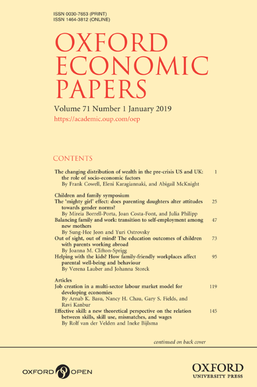
Pineda-Hernández K., Rycx F. & Volral M.
The Journal of Economic Inequality (2025).
Abstract. Using matched employer-employee data for Belgium, covering 1.1 million workers over almost two decades (1999–2016), we find that first-generation immigrants born in developing countries and their second-generation peers earn significantly less than natives (i.e. evidence of a persistent overall wage gap between immigrants and natives). Controlling for a large set of covariates (including sector or firm fixed effects), our estimates suggest that while first-generation immigrants still experience a significant adjusted wage gap, there is no evidence of such a gap for their second-generation peers. The difference between these overall and adjusted wage gaps highlights the key role of compositional effects in explaining inequalities between immigrants and natives. Wage decompositions indeed show that first-generation immigrants earn less than natives because of their lower level of human capital, their segregation in low-paying occupations and sectors, and an ethnic penalty. Second-generation immigrants, on the other hand, receive lower wages, mainly due to the fact that they are younger and have fewer years of tenure than natives. Sensitivity analyses testing the temporal stability of overall and adjusted wage gaps, as well as the moderating role of workers’ level of education, gender and geographical origin, refine these findings.

Cultrera L., Rycx F., Santosuosso G. & Vermeylen G.
Education Economics, Vol. 33, Issue 1, pp. 53–75 (2025).
Abstract. Using a unique pan-European dataset, we rely on two alternative measures of over-education and control stepwise for four groups of covariates in order to interpret the over-education wage penalty in light of theoretical models. Firstly, it appears that a significant fraction (i.e. between 1/5 and 1/3) of PhD holders in Europe are genuinely over-educated. Secondly, these genuinely over-educated PhD holders are found to face a substantial wage penalty (ranging from 15 to almost 30%) with respect to their well-matched counterparts. Finally, unconditional quantile regressions highlight that the over-education wage penalty among PhD holders increases greatly along the wage distribution.
The over-education wage penalty among PhD holders: a European perspective
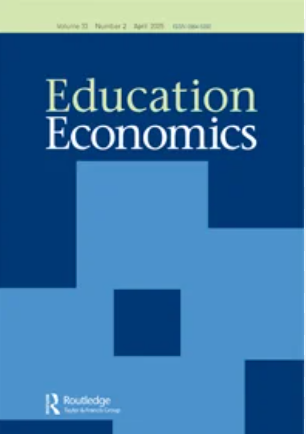
Lagios, N., Méon P. & Tojerow, I.
The Economic Journal (2025).
Abstract. We study the electoral impact of protesting against the far right by investigating the demonstrations held during the 2002 French presidential elections against far-right candidate Jean-Marie Le Pen. Instrumenting rally attendance with rainfall while factoring in that some municipalities never host protests, we find that larger protests reduced the number of votes for Le Pen and abstention, while increasing the number of votes for the incumbent president, Jacques Chirac. We find that the effect spread out beyond the municipalities that hosted protests and worked through media exposure. Using survey data, we show that protests reduced support for the policies advocated by Le Pen. Moreover, the positive effect on voting for Chirac resulted from right-wing voters switching from Le Pen to Chirac and left-wing voters not casting a blank ballot, implying that some voters voted expressively. Finally, we show that protests reduced the social desirability of voting for Le Pen.
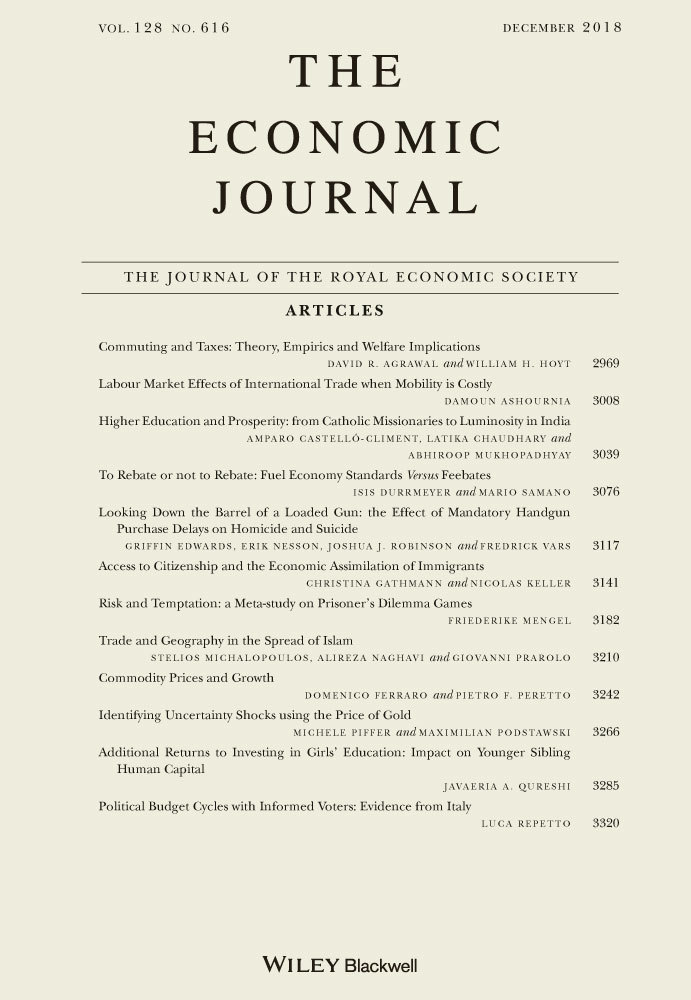
Fontenay, S. & Tojerow, I.
Journal of Health Economics (2025).
Abstract. We conduct a randomized experiment (n = 600) to evaluate a Supported Employment (SE) program that, through intensive job coaching and follow-along support, aims to increase work activity of Belgian Disability Insurance (DI) recipients with mental health conditions. The control group gets regular vocational rehabilitation. After a 30-month follow-up period, we find that SE increases the probability of working while claiming DI by 7.5 percentage points and reduces the amount of DI benefit received by 110 euros per month (−9.5 percent).
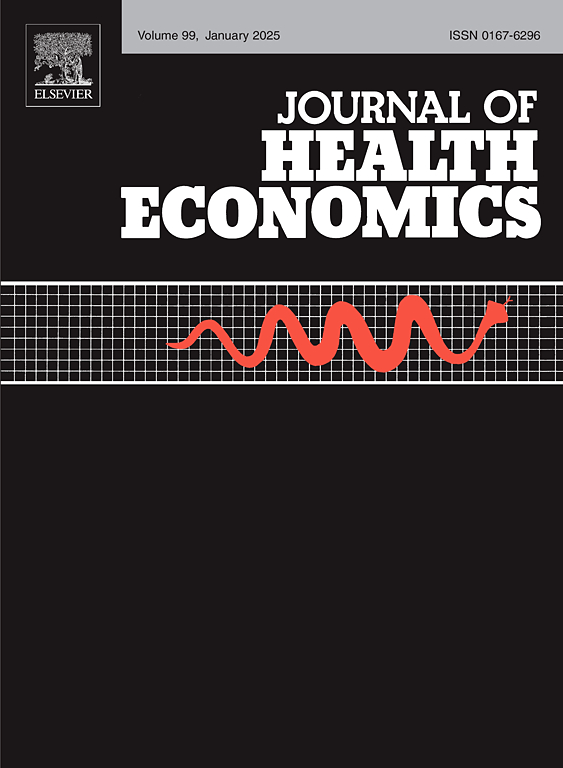
Romainville, C. & Slautsky, E. avec paricipation de Fontaine, M. & Bayenet, B.
Larcier Intersentia (2024).
Description. L’objectif de l’ouvrage est d’offrir un bilan critique de l’état du fédéralisme belge, dans un contexte où celui-ci apparaît sous tension et pourrait évoluer dans les prochaines années. À cette fin, les différentes contributions de l’ouvrage proposent, près de dix ans après la sixième réforme de l’État belge, d’analyser et d’évaluer les forces et les faiblesses du fédéralisme belge tel qu’il existe actuellement, dans une perspective évaluative. Dans un second temps, l’ouvrage se veut davantage prospectif. Il ambitionne, dans les différentes contributions qui le composent, de discuter différentes propositions de réforme du fédéralisme belge qui émanent de la société civile, des acteurs académiques et du monde politique ainsi que leurs conséquences financières et institutionnelles, en vue de mieux comprendre la portée et les implications de ces différentes propositions.
Pour atteindre les objectifs qu’il se donne, l’ouvrage est structuré autour de quatre grands thèmes, qui constituent autant de parties de l’ouvrage. Il s’agit d’étudier, premièrement, les principes de la répartition des compétences et les fondements de l’organisation institutionnelle fédérale de la Belgique. Deuxièmement, sont examinés les enjeux d’une éventuelle réforme de l’État belge pour certaines politiques publiques particulières. Les conséquences de différents scénarios de réformes institutionnelles sur le plan des finances publiques sont analysées dans un troisième temps. Enfin, quatrièmement, sont analysés les procédés selon lesquels les réformes de l’État belge se font et pourraient se faire dans le futur. Chaque thème est tantôt traité par des juristes, tantôt par des économistes, ce qui témoigne du caractère multidisciplinaire du projet entrepris.
Par son objet, l’ouvrage est susceptible d’intéresser un large public, allant des chercheuses et chercheurs intéressés par l’évolution du fédéralisme belge aux citoyens et décideurs politiques préoccupés par l’évolution institutionnelle de notre pays, en passant par tous les praticiennes et praticiens du droit et tous les acteurs des politiques publiques qui sont confrontés à des questions relatives à la répartition des compétences en Belgique ou au fonctionnement de nos institutions.en.

Devos, L., Lippens L., Rycx F., Volral M. & Baert S.
De Economist, Vol. 173, pp. 121–175 (2024).
Abstract. Labour markets struggle to be inclusive, while diversity is increasing. This literature review examines labour market challenges faced by first- and second-generation migrants in Belgium. We systematically review articles published between 2010 and 2023 in the Web of Science Core Collection to delineate underlying mechanisms, associated solutions, policy recommendations and literature gaps. The literature reveals that individuals with a migration background generally experience poorer labour market outcomes than natives. These outcomes vary based on specific origin and gender and persist from the first into the second generation. The mechanisms underlying these poorer outcomes are discrimination, individual preferences, and human and social capital differences. Recommendations for employers include implementing standardised hiring procedures and fostering awareness of discrimination among recruiters. On the employee side, investing in human capital, increasing labour market knowledge, and having competencies formally recognised can help to narrow employment gaps. Our review also advocates for policy refinement to combat biases and suggests that alternative pathways to attaining employment, such as self-employment and volunteering, are promising areas for future research.
Labour Market Disadvantages of Citizens with a Migration Background in Belgium: A Systematic Review

de Meulemeester J-L. & Kusman P-D.
Firenze University Press (2024).
Abstract. In this paper we analyse a specific legal clause inserted in debt contracts in the late Medieval Low Countries: the ‘leistinge’ custom. It implied personal sureties, i.e., vassals or councillors of the debtor (and sometimes himself) who had to go sojourning in an inn for an unspecified period, and there live, eat and drink conspicuously (“as good pledges should do”). This legal mechanism often implied high aristocratic debtors with, in a first stage, ecclesial creditors (as abbeys) and Italian financiers. We show how the innkeeper played an instrumental role in this framework. In Brussels, the technique fostered undoubtedly the use of alternative currencies by noble pledges to circumvent the lack of cash money or the intricacy of exchange rates. Later, this credit technique also spread among local merchants and well-off burghers as debtors and creditors, especially in Northern Low Countries as exemplified by our example of Kampen. In the latter city, this legal tool could well have been favoured by town authorities as an indirect regulation of the property market, avoiding therefore too much speculation on the urban plots during periods of expansion and works of public concern. The efficiency of this custom remains somewhat open to debate, the long-time span of its use suggesting a relative efficacy, whereas its sudden suppression (as in Kampen) hints at some abuses.

Pineda-Hernández K., Rycx F. & Volral M.
Fondation Roi Baudouin (2024).
Abstract. Un Belge sur trois est issu l’immigration. Si le taux d’emploi des personnes issues de l’immigration a significativement augmenté en Belgique au cours des deux dernières décennies, l’écart persistant avec les personnes d’origine belge demeure un défi majeur pour notre pays. Les chiffres révèlent d’ailleurs que la Belgique figure de mauvais élève à l’échelle de l’Union Européenne, avec des taux d’emploi plus bas, particulièrement pour les femmes et les personnes non- originaires de l’UE. Dans un contexte marqué par d’importantes pénuries de travailleurs, ce manque d’inclusion dans le marché du travail belge induit la perte d’un vaste potentiel de talents, de compétences et de diversité. Par ailleurs, il va de soi que l’accès à l’emploi est d’une importance cruciale dans la lutte contre la pauvreté et pour la durabilité de notre système de sécurité sociale. Surtout, pour les hommes et les femmes concernées, il s’agit d’une problématique qui impacte la possibilité concrète de subvenir à leurs besoins ou d’améliorer leurs conditions de vie. Depuis des années, la Fondation Roi Baudouin s’engage sur cette thématique de l’accessibilité de l’emploi pour les personnes issues de l’immigration : elle favorise le dialogue entre les parties prenantes et vise une compréhension accrue des enjeux humains, économiques et sociétaux qui y sont liés. Dans ce cadre et à l’initiative de la Fondation Roi Baudouin, une équipe interuniversitaire s’est constituée en 2021 pour développer la présente étude, qui porte une attention particulière aux femmes. Face au constat d’un double désavantage sur le marché du travail, cette étude vise à mieux comprendre et objectiver les défis spécifiques qu’elles rencontrent dans leur accès à l’emploi. Bien que la littérature scientifique en la matière ne manque pas, cette étude approfondit, précise et nuance les constats. En se concentrant sur les différences générationnelles, en examinant les raisons qui impactent les taux d’activité des femmes issues de l’immigration, elle contribue à une analyse plus complète de la dynamique du marché du travail en Belgique. Surtout, cette étude permet de diffuser des données et analyses en adéquation avec les réalités des personnes concernées, contribuant ainsi à nourrir un débat mieux informé et éloigné des généralisations infertiles.

Fontenay, S. & Tojerow, I.
Review of Economics of the Household, Vol. 23, pp. 625–660 (2024).
Abstract. While a growing literature documents the negative impact of motherhood on women’s career trajectories, the specific mechanisms behind their “decisions” to leave the labor market remain largely undocumented. Our paper fills this gap by showing that career breaks due to health-related issues restrict young mothers from full labor force participation. Using Belgian administrative data from 2002-2016 and an event study design, we reveal that the gender gap in sickness absences only appears after the birth of a first child, and is predominantly reflecting an increase in mental health disorders. Surprisingly, this child penalty does not disappear over the long run: even up to eight years after childbirth, women are 1.2 percentage points more likely than men to stop working because of health-related issues. When connecting sickness absences to the overall child penalty in employment, we find that 17% of women who leave the labor market after having children go on to claim sickness benefits. This effect is the largest for mothers in physically demanding jobs, and more moderate for those in family-friendly occupations.

Leduc, E. & Tojerow, I.
Labor Economics, Vol. 90, 102595 (2024).
Abstract. This paper analyzes subsidies for the domestic services sector, an increasingly popular policy to create employment opportunities for low-skilled workers. Using Belgian administrative data, a differences-in-differences approach, and a shift-share instrumental variable, we estimate the local effects of the policy in targeted industries as well as overall effects on the labor market. We find that domestic service subsidies can increase female employment in the subsidized industries as well as the overall employment rate. This increase in employment is primarily driven by an increase in (formal) labor market participation and, to a lesser extent, a reduction in the rate of participation in unemployment insurance and in other social welfare programs. We also find that these subsidies can lead to an increase in the rate of work incapacity, likely due to the fact they broaden the population that can access the social safety net.
Home Work: Exploring the Labor Market Effects of Subsidizing Domestic Services – ScienceDirect
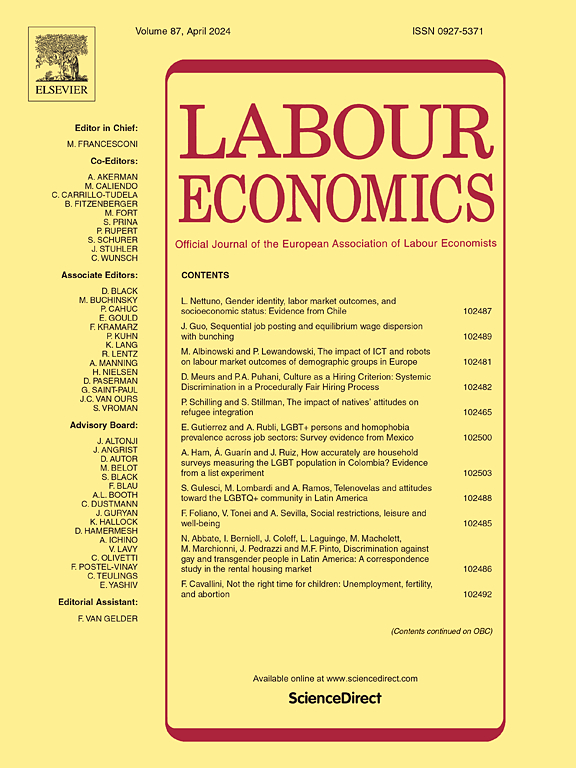
François, A., Lagios, N. & Méon, P.-G.
Public Choice, Vol. 202, pp. 251–275 (2024).
Abstract. This paper studies the relationship between the size of a jurisdiction and how corrupt its citizens perceive officials to be. The relationship may a priori be driven by four distinct mechanisms: (i) larger communities have more officials, thereby making it more likely at least one official is corrupt; (ii) larger communities have a larger budget, thereby offering more opportunity for corruption; (iii) monitoring officials is costlier in larger communities; and (iv) the public is less likely to have contact with officials in larger communities, which raises citizens’ suspicion. First, using cross-country analysis, we establish that people perceive more corruption in countries with larger populations. We then test this stylized fact using French survey data on the perception of municipal government corruption. We again observe that the perception of corruption increases with population size. This result is robust to a series of checks and many confounding factors. Moreover, our results hold across two distinct periods and for another administrative unit, departments. Finally, we report suggestive evidence that the stylized fact is driven by mechanisms (i) and (ii), but not by (iii) and (iv).
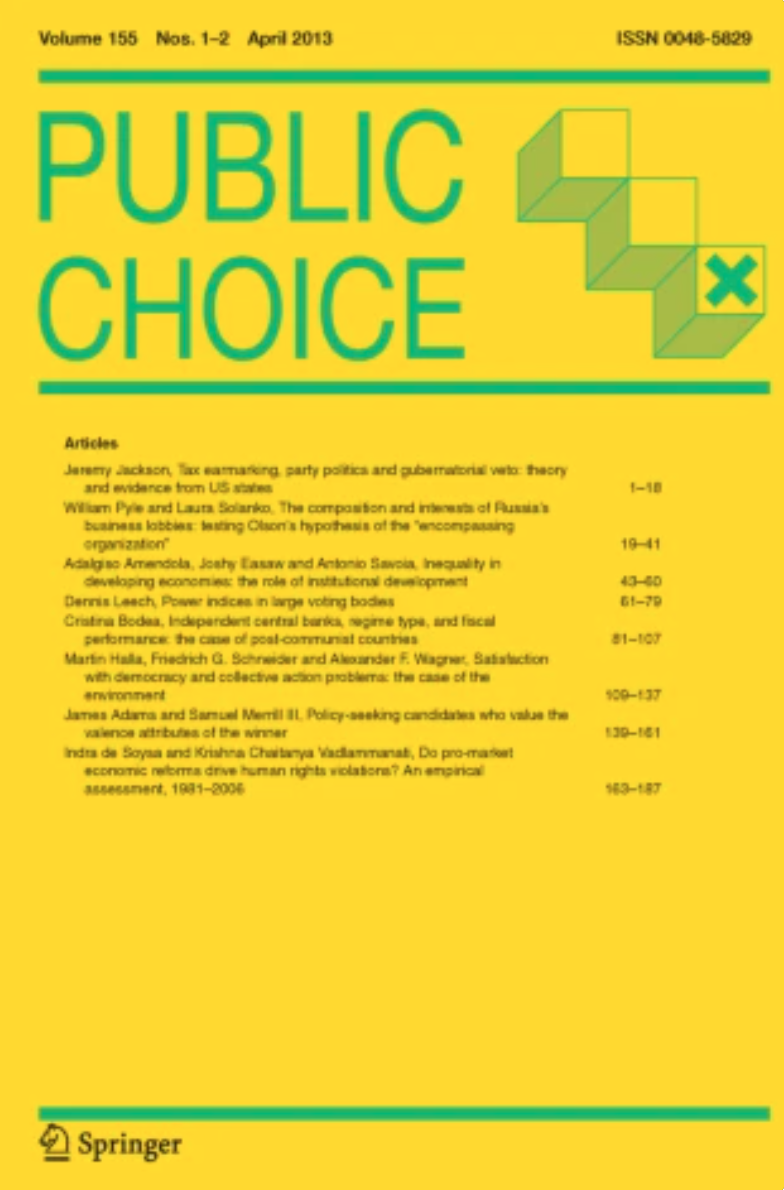
Hayo, B. & Méon P.
Journal of International Money and Finance, Vol. 142 (2024).
Abstract. Using a survey experiment, we study whether showing German respondents a graph representing the European Central Bank’s inflation target alongside euro area inflation from 1999 to 2017 affects respondents’ trust in the ECB. On average, the treatment has no significant effect. However, it does increase trust in the ECB among respondents with no entrenched views, proxied by those who report no preference for any political party. Within this group, information about the actual path of the inflation rate, rather than information about the inflation target itself, appears to be the main driver of the treatment’s effect.

Lagios, N. & Méon P.
Journal of Economic Behavior & Organization, Vol. 72, Issue 1, pp. 49-80 (2024).
Abstract. Exploiting the award process, we implement a regression discontinuity design to estimate the effect of winning France’s main literary prize, the Goncourt. It increases sales, especially for books that sold fewer copies before the announcement, the number of reviews on Amazon, and the probability of them being negative. The effect is partly driven by an increase in word of mouth. Those findings are consistent with a model where the prize provides information on the existence of a book and acts as a quality signal and a coordination device but prompts consumers to read books that are far from their tastes.
Experts, Information, Reviews, and Coordination: Evidence on How Prizes Affect Sales

De Brouwer, O. & Tojerow, I.
Empirical Economics, Vol. 67, pp. 253–287 (2024).
Abstract. Over the last two decades, social security reforms in several European countries have turned early retirement routes for older workers increasingly difficult. The size of the effects of these reforms on labour supply and social security transfers, and how these effects interact with workers’ characteristics have yet to be measured. This article sheds light on this issue by exploring the consequences of postponing access to an old-age unemployment programme—from age 58 to 60—in Belgium. The programme provides laid-off workers with a combination of unemployment benefits and a monthly supplement paid by the employer until the full retirement age. Exploiting register data on the universe of workers and using a difference-in-difference identification strategy, the authors find that UCS eligibility negatively affects employment participation but also mitigates older workers’ participation in other social security programmes.
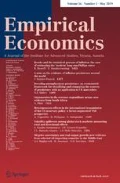
Licata, C. and Méon, P.-G.
Journal of Economic & Behavior Organisation, Vol. 219, pp. 284-304 (2024).
Abstract. Using two surveys, we study how respondents process visual cues to identify the political orientation (left- vs. right-wing) of members of the French National Assembly (referred to as “deputies”), based on official photographs only. We first confirm that respondents outperform random guesses. Second, we find that their categorizations correlate with observable characteristics (tie color, facial hair) and subjective assessments of deputies’ personality traits (attractiveness, competence, trustworthiness). Third, the objective visual cues that respondents use are consistent with the actual characteristics of left- and right-wing deputies, and respondents mistakenly react to subjective personality traits that differ little across the two groups of deputies. Fourth, left- and right-wing respondents use the same cues in the same way. However, attractiveness stands out because respondents categorize attractive deputies as corresponding to their own orientation. Fifth, the magnitude of the marginal impact of a characteristic on the probability of a respondent categorizing a photograph as left- or right-wing increases strictly with the representativeness of that characteristic. Finally, we find evidence that some characteristics correlate with categorization errors. Findings 1, 2, 4, and the finding that respondents use cues in the correct way are consistent with both Bayesian behavior and the representativeness heuristic. Findings 5, 6, and the finding that respondents react to subjective cues that do not differ across groups are at odds with Bayesian inference but consistent with the representativeness heuristic. Finding that attractiveness trumps partisan stereotypes suggests the existence a partisan halo effect.
https://www.sciencedirect.com/science/article/pii/S0167268124000209
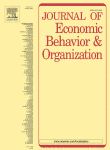
Hayo, B. and Méon P.-G.
Journal of Macroeconomics, Vol. 78, 103558 (2023).
Abstract. An experiment using a representative survey of the German population shows that letting respondents report a number rather than asking them to choose from a list of predefined ranges lowers the response rate for both perceived past and expected inflation and decreases (increases) reported past (expected) inflation. Income, education, gender, objective and subjective knowledge about monetary policy, and political affiliation affect the effect’s size but not its sign. East and West German respondents who were 15 or older when the Berlin Wall fell have reactions different from those who were younger at that time, which supports the ‘impressionable years’ hypothesis based on different inflation experiences.
https://www.sciencedirect.com/science/article/abs/pii/S0164070423000587
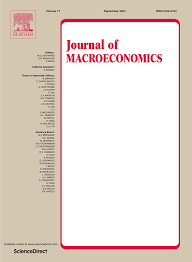
Charpin, A., Szafarz, A. and Tojerow, I.
Economics Letters, 111285 (2023).
Abstract. “Old boys’ club” ownership structures can hamper the empowerment of female talent. We use African data to show that the CEOs of firms with female shareholders are more likely to be women, regardless of the size of female shareholdings.
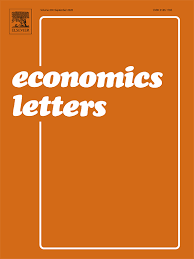
Lannoo, A., Duchêne, C., Godin, I. and Tojerow, I.
Brussels Studies, n°183 (2023).
Abstract. La généralisation de l’éducation à la vie relationnelle, affective et sexuelle (EVRAS) est un projet mis en place depuis de nombreuses années en RBC francophone. Malgré la mobilisation de politiques, de nombreux acteurs et d’établissements scolaires, plus de dix ans ont été nécessaires après son intégration dans les missions de l’enseignement pour que l’EVRAS devienne obligatoire à la rentrée 2023, sous une forme minimale. L’absence d’un réel parcours EVRAS tout au long de la scolarité est problématique et participe aux inégalités sociales de santé déjà fortement présentes à Bruxelles. Cette étude participe à l’élan récemment impulsé par la COCOF et a pour objectif de contribuer à la définition de futures politiques publiques ambitieuses à ce sujet : elle propose trois scénarios de généralisation de l’EVRAS dans l’enseignement obligatoire bruxellois francophone, accompagné chacun d’une modélisation budgétaire.

De Brouwer, O., Leduc, E. & Tojerow, I.
Journal of Public Economics, Vol. 224 (2023).
Abstract. We study the effect of job search monitoring (JSM) on individual labor market outcomes of the long-term unemployed. Exploiting the implementation of a JSM program targeted at jobseekers under the age of 49, we set up a regression discontinuity design that credibly identifies the program’s causal effect on unemployment, employment, and disability insurance (DI) participation and participation in other social welfare programs within a three-year period. We find that JSM increases exits from unemployment to DI without affecting transitions into employment or other social welfare programs. We further find that the effect of JSM on DI materializes before any sanction can be imposed and monitored individuals are still 10 percentage points more likely to be on DI three years after the start of monitoring. Ultimately, exploring fiscal implications reveals that the decrease in unemployment transfers as a result of JSM is entirely offset by the increase in DI transfers.
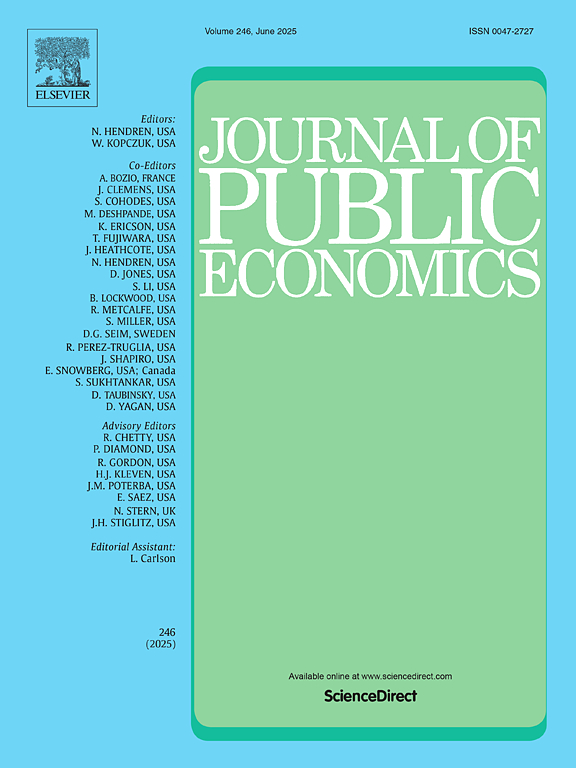
Fays, V., Mahy, B. and Rycx, F.
Labour, vol. 37, pp. 1-24 (2023).
Abstract. This article examines the impact of a firm’s position in Global Value Chains (GVCs) on wages according to workers’ origin. Based on a unique linked employer–employee dataset regarding the Belgian manufacturing industry covering the 2002–2010 timespan, our estimates show that firms that are more upstream in the value chain pay on average significantly higher wages. However, the wage premium associated with upstreamness is also found to be unequally shared among workers. Unconditional quantile regressions and decomposition methods suggest that high-wage workers born in developed countries benefit the most from being employed higher up the value chain, while workers born in developing countries appear to be unfairly rewarded.
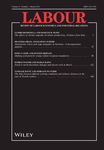
Jacobs, V., Rycx, F. and Volral, M.
De Economist (Netherlands Economic Review), 170, pp. 459-501 (2022).
Abstract. This paper analyses the wage effects of educational mismatch by workers’ origin using a sizeable, detailed matched employer–employee dataset for Belgium. Relying on a fine-grained approach to measuring educational mismatch, the results show that over-educated workers, regardless of their origin, suffer a wage penalty compared to their well-matched former classmates. However, the magnitude of this wage penalty is found to vary considerably depending on workers’ origin. In addition, the estimates show that origin-based differences in over-education wage penalties significantly depend on both demographics (workers’ region of birth, education, gender and tenure) and employer characteristics (firm size and collective bargaining). To our knowledge, the role played by these different moderating variables has been either little or not explored in this context before.
https://link.springer.com/article/10.1007/s10645-022-09413-9
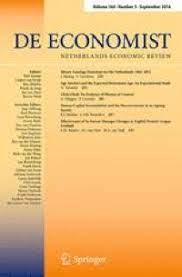
Jacobs, V., Pineda-Hernandez, K., Rycx, F. and Volral, M.
LIDAM Discussion Paper IRES (2022/3).
Abstract. We provide first evidence of the impact of over-education, among natives and immigrants,
on firm-level productivity and wages. We use Belgian linked panel data and rely on the
methodology from Hellerstein et al. (1999) to estimate ORU (over-, required, and undereducation) equations aggregated at the firm level. Our results show that the over-education
wage premium is higher for natives than for immigrants. However, since the differential
in productivity gains associated with over-education between natives and immigrants
outweighs the corresponding wage premium differential, we conclude – based on OLS and
dynamic GMM-SYS estimates – that over-educated native workers are in fact underpaid to
a greater extent than their over-educated immigrant counterparts. This conclusion is refined
by sensitivity analyses, when testing the role of immigrants’ background (e.g. region of
birth, immigrant generation, age at arrival in the host country, tenure).
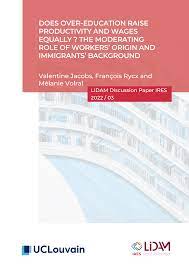
Sous la dir. de Bayenet, B., Fontaine, M. et Husden, Y.
Pyramides, n°35/36 (2021).
Plus d’infos : La politique hospitalière en Belgique (anthemis.be)

Pireda-Hernandez, K., Rycx, F., Volral, M.
British Journal of Industrial Relations, Vol. 60, Issue 4, pp. 895-928 (2022).
Although many studies point to the significant influence of collective bargaining (CB) institutions on earnings inequalities, evidence on how these institutions shape poverty rates across developed economies remains surprisingly scarce. This paper explicitly addresses the relationship between CB systems and working-age poverty rates before and after taxes and transfers in 24 developed countries over the period 1990–2015. Our results show that countries with a more centralized CB system, a more extended bargaining coverage rate and/or a higher trade union density display significantly lower poverty rates. However, these results only hold in a post-tax benefit scenario. Controlling for country and time fixed effects and a wide range of covariates, our estimates indeed suggest that the poverty-reducing effect of CB institutions stems from the political strength of trade unions in promoting public social spending rather than from any direct effect on earnings inequalities. Sensitivity tests for endogeneity and overlapping samples support this conclusion.
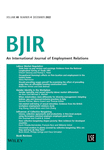
Du Caju, P., Périlleux, G., Rycx, F., Tojerow, I.
Review of Economics of the Household, 21, pp. 291-333 (2022).
This paper investigates the potentially non-linear relation between households’ indebtedness and their consumption. To do so, we use panel data from the two waves of the Belgian Household Finance and Consumption Survey. Unlike previous studies, we find a negative effect of households’ indebtedness on their consumption, even in the absence of any negative shock on their assets. Our findings suggest that, without such a shock, it is the day-to-day sustainability of the debt, rather than its overall sustainability, that leads households to reduce their consumption. The effect thus seems to occur through precautionary motives. To explore potential non-linearities in this effect, we perform a threshold analysis, whose results suggest that households should not have a debt-service-to-income ratio greater than 30% as this leads to a substantial reduction in their consumption. The effect appears to be robust to various specifications, including the inclusion of other European countries, to result from a trade-off between housing and consumption, and to be more prevalent among fragile households.

Mahy, B., Rycx, F., Vermeylen, G., Volral, M.
The World Economy, Vol. 45, Issue 7, pp. 2222-2250 (2022).
This paper is the first to estimate the impact of a direct measurement of firm-level upstreamness (i.e. the steps—weighted distance—before the production of a firm meets either domestic or foreign final demand) on productivity and wage costs. To this end, we merged detailed Belgian linked panel data, covering all years from 2002 to 2010, with a unique dataset containing accurate information on the yearly position of each firm in the value chain. We rely on the methodological framework pioneered by Hellerstein et al. (Journal of Labor Economics, 1999, 17, 409) to estimate panel data models at the firm level. Controlling for key worker and firm characteristics, our GMM-SYS and FE-IV estimates show that firms positioned more upstream (i.e. further away from the final consumer) create more value. Our results also indicate that the impact of firm-level upstreamness is stronger on productivity than on wage costs, which implies that profitability is fostered. More precisely, in line with Belgium’s strong labour market institutions, our estimates suggest that the productivity gains associated with upstreamness are shared almost equally between wages and profits.
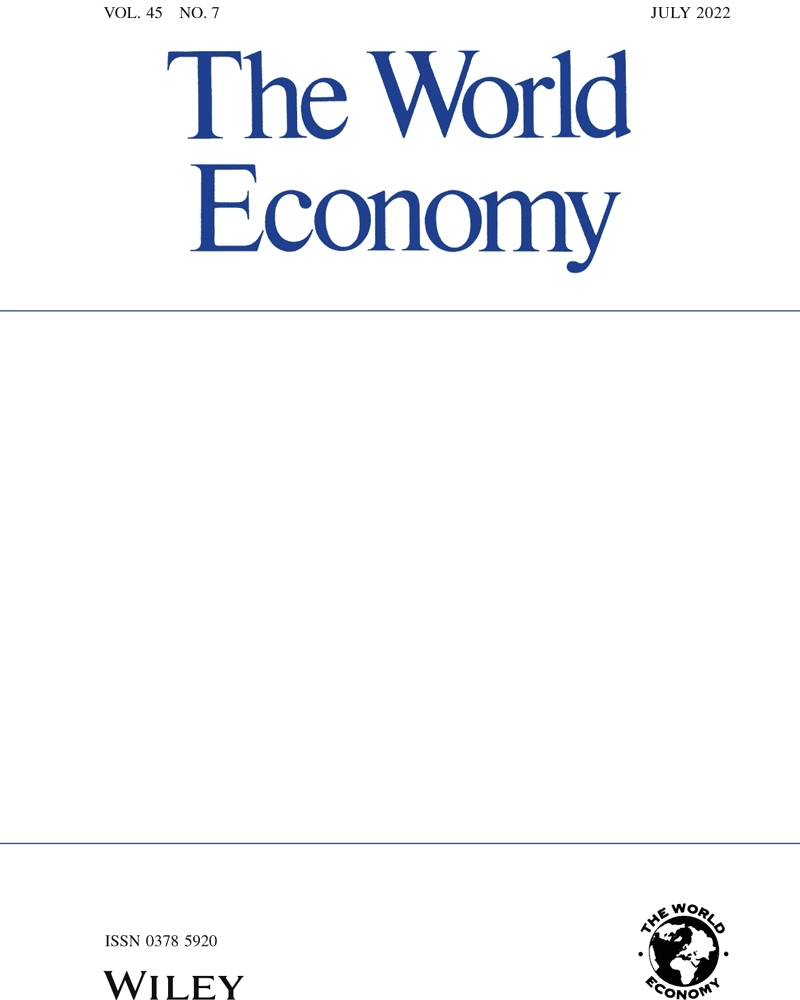
Cultrera, L., Mahy, B., Rycx, F., Vermeylen, G.
Education Economics, Vol. 30, Issue 6, pp. 561-573 (2022).
This paper is among the first to investigate the impact of over-education and over-skilling on workers’ wages using a unique pan-European database covering twenty-eight countries for the year 2014, namely the CEDEFOP’s European Skills and Jobs (ESJ) survey. Overall, the results suggest the existence of a wage penalty associated with over-education. When the educational and the skills mismatches are interacted with each other in order to distinguish apparent over-education from genuine over-education, the results highlight that the workers with the highest wage penalty are those who are both over-educated and over-skilled.
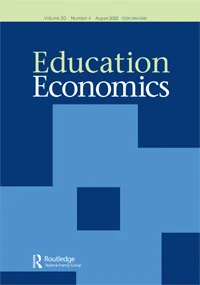
Gagliani, N., Grinza,E., Rycx, F.
Industrial, a Journal of Economy and Society Relations, Vol. 62, Issue 1, pp. 3-33 (2022).
Using rich longitudinal matched employer-employee data on Belgian firms, we explore the impact of workers’ tenure on firm productivity. To do so, we estimate production functions augmented with firm-level measures of tenure. We deal with the endogeneity of standard inputs and tenure, which arises from unobserved firm heterogeneity and reverse causality, by applying a modified version of Ackerberg et al.’s (2015) control function method, which explicitly removes firm fixed effects. Consistently with recent theoretical predictions, our analyses point to positive, but decreasing, returns to tenure. We also find that the impact differs widely across several firm dimensions. Tenure is particularly beneficial for productivity in contexts characterized by a certain degree of routineness and low job complexity. Along the same lines, our findings indicate that tenure exerts stronger positive impacts in industrial and capital-intensive firms, as well as in firms less reliant on ICT-intensive and knowledge-intensive processes.
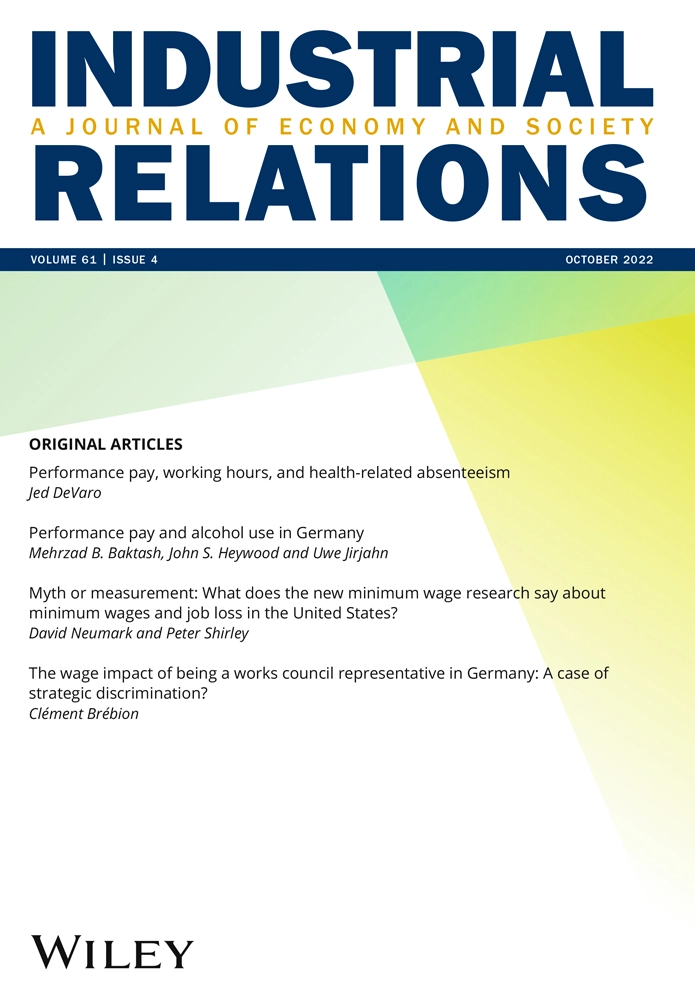
Fernandez Guerrico, S.
Journal of Health Economics, Vol. 80, 102538 (2021).

Fontenay, S., Murphy, T., & Tojerow, I.
Applied Economics Letters, Vol. 30, Issue 4, pp. 488-495 (2021).

Piton, C., & Rycx, F.
De Economist, 169, pp. 319–365 (2021).
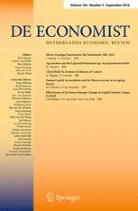
Kouevi-Gath, B., & Méon, P-G.
Public Choice, 186, pp. 413–446 (2021).

François, A., & Méon, P-G.
European Journal of Political Economy, 67, 101962 (2021).

Lacroix, J., Méon, P-G., & Sekkat, K.
Journal of Comparative Economics, 49, Issue 2, pp. 340-357 (2021).

Giani, M., & Méon, P-G.

Méon, P-G., & Sekkat, K.
Journal of Institutional Economics, First View, pp. 1-15 (2021).
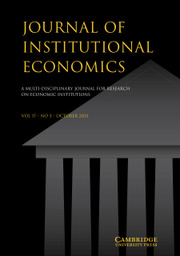
Jacobs, V., Mahy, B., Rycx, F., & Volral, M.
Applied Economics, 53, Issue 1, pp. 61-78 (2021).
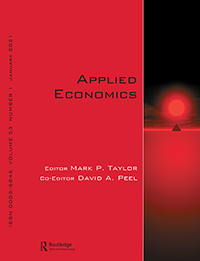
Gagliardi, N., Mahy, B., & Rycx, F.
British Journal of Industrial Relations, 59 (1), pp. 52-83 (2021).
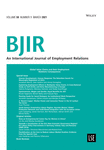
Fays, V., Mahy, B., Rycx, F., & Volral, M.
Applied Economics, 53 (13), pp. 1551-1571 (2021).

Bertrand, O., Fontaine, M., & Hausmann, T.
Dynamiques régionales, 10, pp. 59-80 (2021).

Fays, V., Jacobs, V., Mahy, B., Rycx, F., & Volral, M.
Dynamiques régionales, 9, pp. 57-72 (2020).

Mahy, B., Rycx, F., & Vermeylen, G.
Dynamiques régionales, 9, pp. 37-56 (2020).

Mahy, B., Rycx, F., & Volral, M.
Dynamiques régionales, 9, pp. 73-85 (2020).

Giuliano, R., Mahy, B., & Rycx, F.
Dynamiques régionales, 9, pp. 17-36 (2020).

Mahy, B., Rycx, F., Vermeylen, G., & Volral, M.
Reflets et Perspectives de la vie économique, LVIII(2-3), pp. 95-104 (2020).
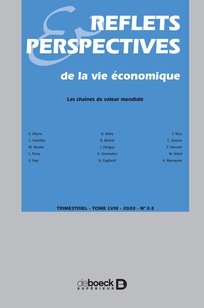
Fays, V., Mahy, B., & Rycx, F.
Reflets et Perspectives de la vie économique, LVIII(2-3), 105-114 (2020).

Dhyne, E., Mahy, B., & Rycx, F.
Reflets et Perspectives de la vie économique, LVIII(2-3), pp. 115-134 (2020).

Garnero, A., Rycx, F., & Terraz, I.
Industrial Relations: A Journal of Economy and Society, 58 (4), pp. 936-972 (2020).
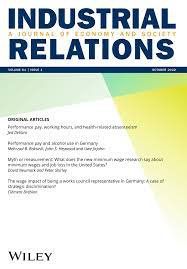
Grinza, E., Kampelmann, S., & Rycx, F.
Journal of Economic Inequality, 18 (2), pp. 181-211 (2020).
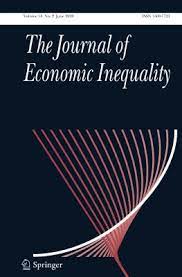
Grinza, E., & Rycx, F.
Industrial Relations: A Journal of Economy and Society, 59 (1), pp. 150-194 (2020).

Kampelmann, S., Mahy, B., Rycx, F., & Vermeylen, G.
Labour, 34/1 , pp. 80-112 (2020).

Dhyne, E., Mahy, B., & Rycx, F.
Reflets et Perspectives de la vie économique, double special issue, LVII(2-3): pp. 5-141 (2020).

Gagliardi, N., Mahy, B., & Rycx, F.
Reflets et Perspectives de la vie économique, LVII(4), pp. 55-62 (2019).

Piton,C., & Rycx, F.
IZA Journal of Labor Policy, 9 (2), pp. 1-32 (2019).

Cornille, D., Rycx, F., & Tojerow, I.
Journal of Financial Stability, Elsevier, 41, pp. 1-13 (2019).
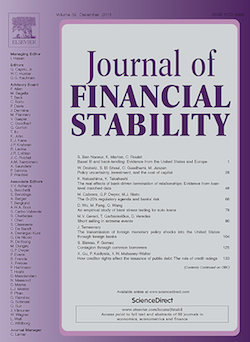
Fradkin, A., Panier, F., & Tojerow, I.
Journal of Labor Economics, 37(1), pp. 35-100 (2019).
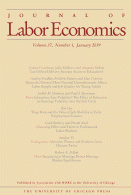
Méon, P-G., & Tojerow, I.
Journal of Comparative Economics, Elsevier, pp. 1-19 (2018).
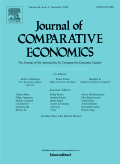
Rycx, François; Kampelmann, Stephen; Saks, Yves & Tojerow, Ilan
Regional Studies, 52(12), pp. 1695-1707 (2018)..
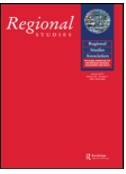
De Brouwer, O., & Tojerow, I.
Revue de Sécurité Sociale, 1, pp. 5-63 (2018).

Avanzo, S.
The Social Question in the Global World, Cambridge Scholars Publishing – Enabudged Editor, pp. 208-233 (2018).

Rycx, F., Kampelmann, S., Saks, Y., & Tojerow, I.
IZA Journal of Labor Economics, 7(1), pp. 1-37 (2018).
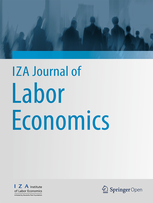
Rennoir, M., & Tojerow, I.
Dynamiques Régionales, 6, pp. 97-117 (2018).

Bayenet, B.
in : Actes du Colloque des 8 et 9 juin 2017 “Quelle nouvelle politique industrielle pour la Région de Bruxelles-Capitale”, Conseil Economique et Social, Région de Bruxelles-Capitale (2017).

Bayenet, B., Brunet, S., Caruso, F. and O’Dorchai, S.
Rapport sur l’Economie Wallonne, pp. 271-284 (2017).

Bayenet, B., Caruso, F., Louis, V., Scourneau, V. and Verschueren, F.
Rapport sur l’Economie Wallonne, pp. 63-139 (2017).

Bayenet, B. and Brunet, S. (eds)
En collaboration avec l’IWEPS, la Cellule d’analyse économique et stratégique de la Sogepa et la DG06 (Région Wallonne), 313 p. (2017).

Rycx, F., Giuliano, R., Kampelmann, S. and Mahy, B.
British Journal of Industrial Relations, 55(2), pp. 421-449 (2017).
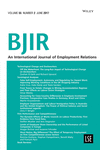
Rycx, F., Giuliano, R., Mahy, B. and Vermeylen, G.
Applied Economics, 49(6), pp. 587-605 (2017).
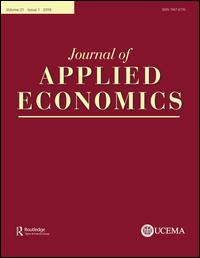
Avanzo, S. and Hamzaoui, M.
Les Politiques Sociales, 1-2 (2017).
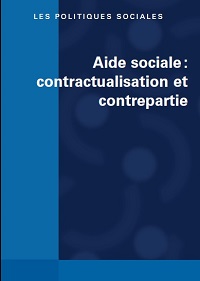
Bayenet, B., Bourgeois, M. and Darte, D.
Larcier, 993 p., (2017).
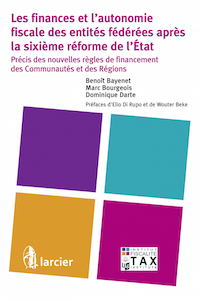
Giuliano, R. Mahy, B., Rycx, F. and Vermeylen, G.
Reflets et Perspectives de la vie économique, 55(4), pp. 93-104 (2016).
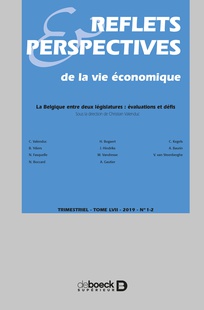
Mahy, B. Rycx, F. and Volral, M.
Reflets et Perspectives de la vie économique, 55(4), pp. 71-80 (2016).
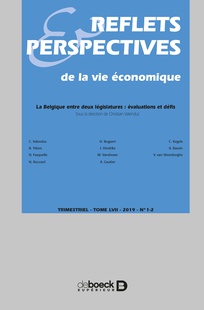
Giuliano, R. Kampelmann, S., Mahy, B. and Rycx, F.
Reflets et Perspectives de la vie économique, 55(4), pp. 57-69 (2016).
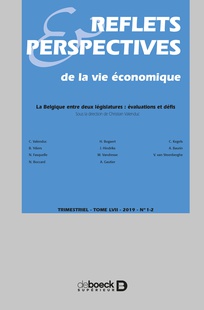
Garnero, A., Kampelmann, S. and Rycx, F.
Reflets et Perspectives de la vie économique, 55(4), pp. 81-91 (2016).

Bayenet, B., Brunet, S. and Caruso, F.
Rapport sur l’Economie Wallonne, pp. 251-259 (2016).
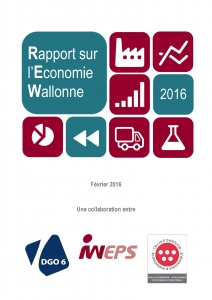
Bayenet, B. and Brunet, S. (eds)
En collaboration avec l’IWEPS, la Cellule d’analyse économique et stratégique de la Sogepa et la DG06 (Région Wallonne), 260 p. (2016).

Avanzo, S.
In : Hamzaoui, M., Léonard, D. and Artois, P., Vieillissement et société : Catégorisation, Travail, Politiques Sociales, Louvain-La-Neuve : Academia, pp. 133-146 (2016).

Avanzo, S.
In : Hamzaoui, M., Artois, P. and Mélon, L., Le secteur non marchand au coeur du changement, Charleroi : Couleur-Livres (2016).

Rycx, F., Mahy, B. and Vandenberghe, V.
Perspectives de la vie économique, Vol. LV(4), pp. 5-114 (2016).
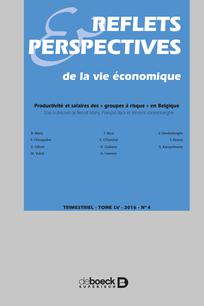
Rycx, F. Konings, J. and Vandenberghe, V. (eds)
International Journal of Manpower, special issue, Vol.37(2), pp. 197-392 (2016).

Rycx, F. Garnero, A., Mahy, B. and Guiliano, R.
International Journal of Manpower, 37(2), pp. 303-322 (2016).
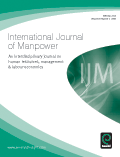
Rycx, F. and Kampelmann, S.
Iza Journal of Development and Migration, 5(15), 24 p. (2016).
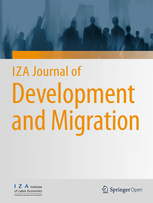
Rycx, F., Mahy, B. and Voiral, M.
International Journal of Manpower, 37(2), pp. 197-209 (2016).
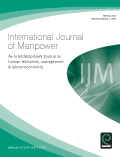
Avioutskii, V., Roth, F. and Tensaout, M.
Brussels Economic Review, 58(3) (2015).
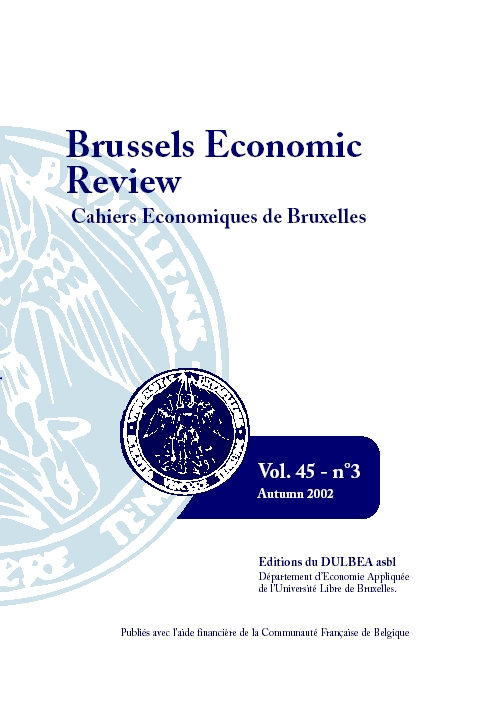
Bayenet, B. and Husson,J.-F.
“La dotation globale de fonctionnement en question : éléments d’évaluation et perspectives”, Association des Communautés urbaines et métropoles de France, Association des maires des grandes villes de France et Association des petites villes de France, pp. 114-129 (2015).
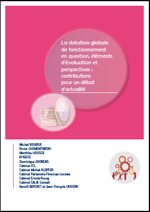
Avanzo, S.
Acciones e Investigaciones Sociales, 35, pp. 115-132 (2015).

Rycx, F., Garnero, A. and Kampelmann, S.
British Journal of Industrial Relations, 53(4), pp. 760-788 (2015).
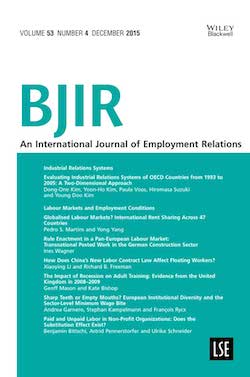
Rycx, F. Garnero, A. and Kampelmann, S.
European Journal of Industrial Relations, 21(2), pp. 115-130 (2015).
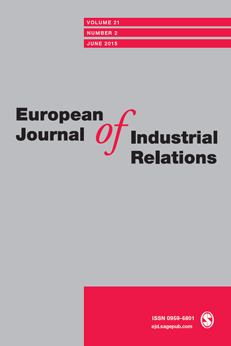
Rycx, F. Mahy, B. and Vermeylen, G.
De Economist, 163(2), pp. 233-262 (2015).
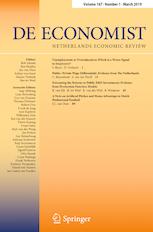
Allegretto, S. A. and Tojerow, I.
Monthly Labor Review (2014).

Rycx, F., Garnero, A. and Kampelmann, S.
Industrial and Labor Relations Review, 67(3), pp. 926-954 (2014).
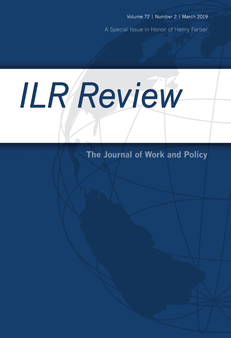
Rycx, F. and Bernhard, M.
Review of International Economics, 22(1), pp. 73-85 (2014).
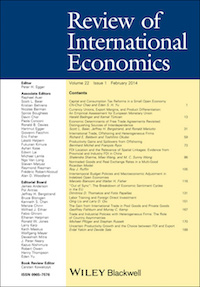
Rusinek, M. and Tojerow, I.
Regional Studies, 48(2), pp. 301-317 (2014).
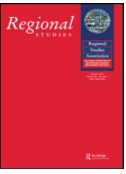
Rycx, F., Garnero, A. and Kampelmann, S.
Industrial Relations : A Journal of Industrial Relations, 53(3), pp. 430-477 (2014).
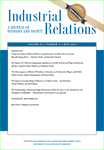
Mahy, B., Rycx, F. and Vermeylen G.
Dynamiques régionales, 2014/1, pp. 17-26 (2014).
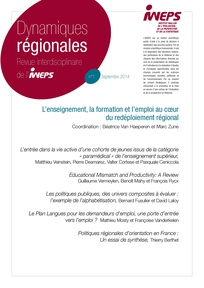
Kampelmann, S. and Rycx, F.
Brussels Economic Review, 56(2) (2013).
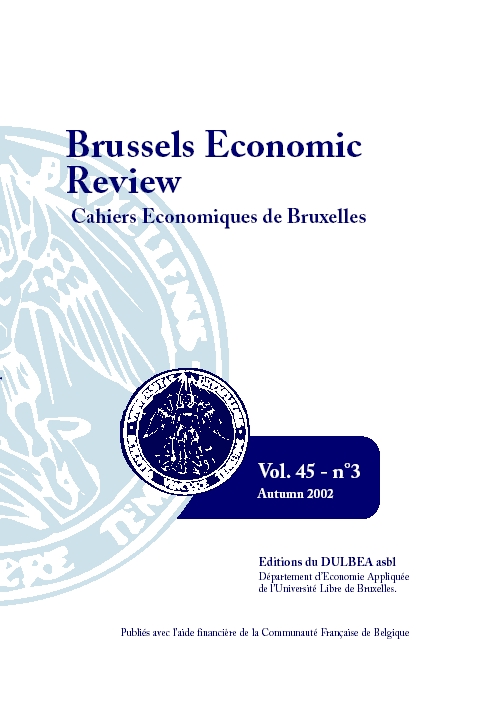
Rycx, F. and Rusinek, M.
British Journal of Industrial Relations, 51(3), pp. 28-58 (2013).
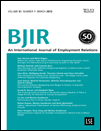
Rycx, F. and Kampelmann, S.
Socio-Economic Review, 11(1), pp. 131-157. (2013)

Du Caju, P., Rycx, F. and Tojerow, I.
Review of World Economics, 48(2), pp. 297-331 (2012).
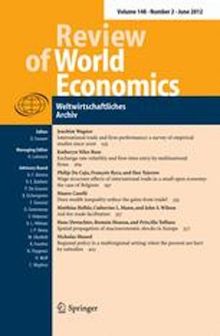
Giuliano, R., Mahy, B. and Rycx, F.
Reflets et Perspectives de la vie économique, 51(3), pp. 85-95 (2012).
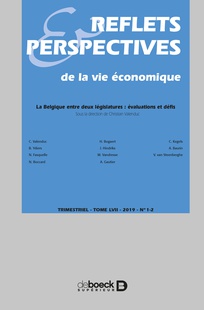
Rycx, F. and Kampelmann, S.
De Economist, 160(3), pp. 257-287 (2012).
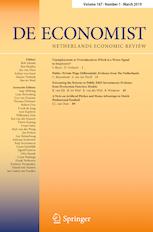
Rycx, F., Citoni, G. and Mahy, B. (eds)
International Journal of Manpower, special issue, 33(3), pp. 224-339 (2012).

Rycx, F. and Kampelmann, S.
Economics of Education Review, 31(6), pp. 918-931 (2012).
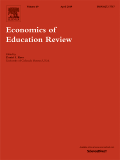
Rycx, F., Cataldi, A. and Kampelmann, S.
International Journal of Manpower, 33(3), pp. 264-283 (2011).
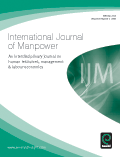
Rycx, F. and Bernhard, M.
Applied Economics, 44(2), pp. 229-251 (2011).
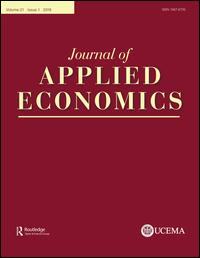
Kampelmann, S. and Rycx, F.
Reflets et Perspectives de la vie économique, 50(4), pp. 119-131 (2011).
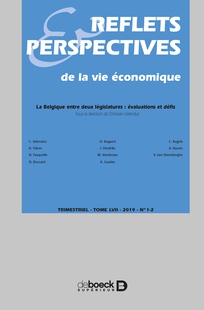
Du Caju, P., Rycx, F. and Tojerow, I.
The Manchester School, 79(4), pp. 691-717 (2011).

Rycx, F., Magda, I. Tojerow, I. and Valsamis, D.
The Economics of Transition, 19(4), pp. 749-769 (2011).

Rycx, François; Mahy, Benoît & Voiral, Mélanie (2011)
British Journal of Industrial Relations, 49(3), 460-485.
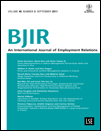
Rycx, F., Cataldi, A. and Kampelmann, S.
De Economist, special issue on Workforce Aging, 159(2), pp. 193-221 (2011).
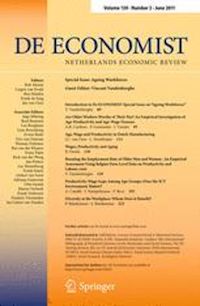
Rycx, François; Mahy, Benoît & Volral, Mélanie (2011)
Scottish Journal of Political Economy, 58(4), 455-489.
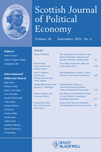
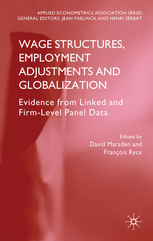
Rycx, François & Lallemand, Thierry (2009)
De Economist, 157(3), 273-292.
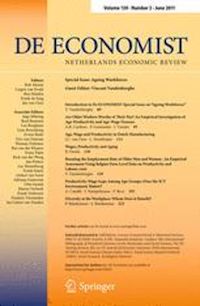
Tojerow, Ilan (2008)
Reflets et Perspectives de la vie économique , 47(3), 55-65.
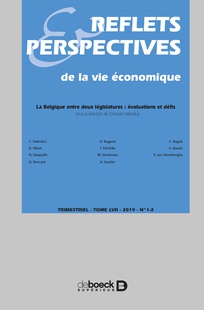
Mahy, Benoît; Rycx, François; Volral, Mélanie (2008)
Reflets et Perspectives de la vie économique, 47(3), 27-40
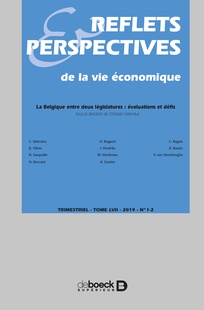
Rusinek, Michael & Rycx, François (2008)
Reflets et Perspectives de la vie économique, 47(3), 101-114
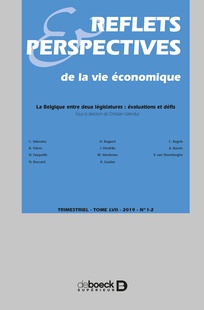
Rycx, François; Lallemand, Thierry & Plasman, Robert (2008)
Journal of Sports Economics, 9(1), 3-19.
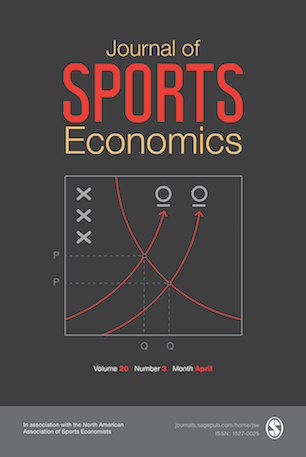
in Rycx, François; Garofalo, Antonio & Concetto Paolo Vinci (eds) (2008)
International Journal of Manpower, special issue, 29(3), 192-298.
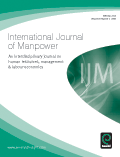
Rycx, François; Lallemand, Thierry & Plasman, Robert (2007)
Empirica, 34(5), 427-451.
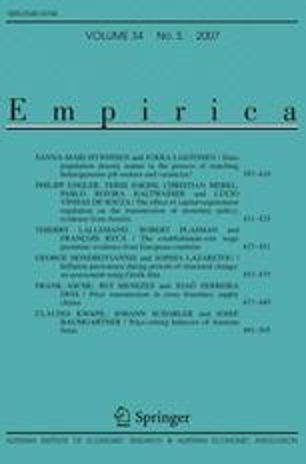
Plasman, Robert; Rusinek, Michael & Tojerow, Ilan (2007)
Reflets et Perspectives de la vie économique, 56(2/3), 65-74.
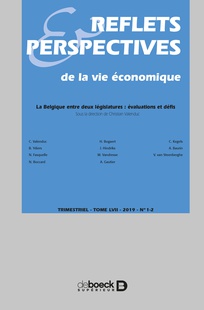
Rycx, François & Tojerow, Ilan (2007)
Reflets et Perspectives de la vie économique, 56(2/3), 13-22
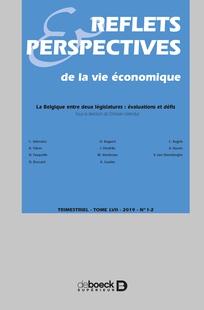
Lallemand, Thierry & Rycx, François (2007)
Reflets et Perspectives de la vie économique, 46(2/3), 75-87
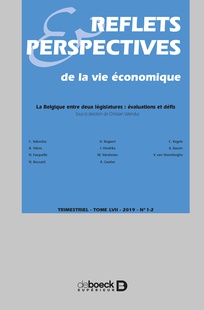
Rycx, François; Mahy, Benoît & Plasman, Robert (2007)
Reflets & Perspectives de la vie économique, double special issue, 28(7), 532-650.
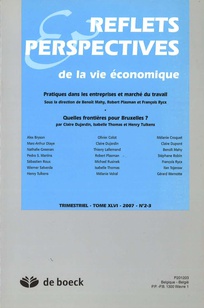
Rycx, François; Altavilla, Carlo & Mahy, Benoît (eds) (2007)
International Journal of Manpower, special issue, 28(7), 532-650.
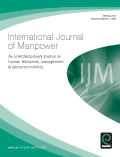
Gannon, Brenda; Plasman, Robert; Rycx, François & Tojerow, Ilan (2007)
The Economic and Social Review, 38(1), 135-155.
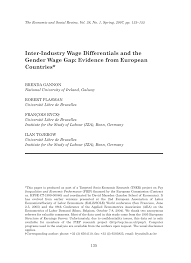
Plasman, Robert; Rycx, François & Tojerow, Ilan (2007)
Brussels Economic Review , 50(1), 11-38.
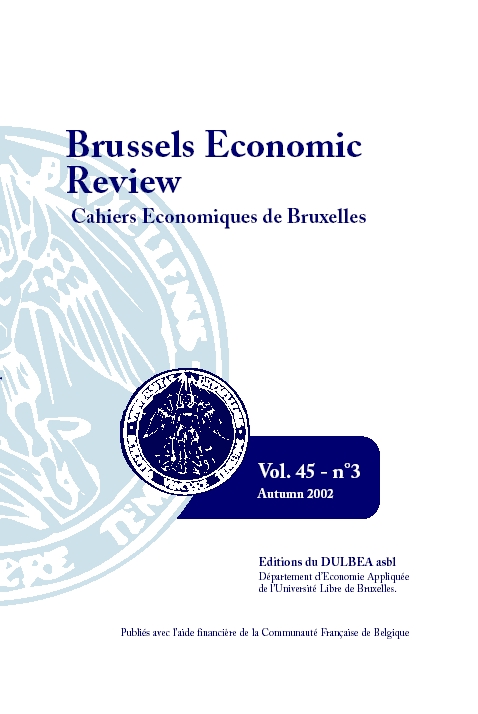
in Rycx, François; Mahy, Benoît & Plasman, Robert (2006)
Palgrave Macmillan, 2006, 224 p.

Rycx, François; Mahy, Benoît & Plasman, Robert (eds) (2005)
Reflets & Perspectives de la vie économique, XLIII(2), 3-107.
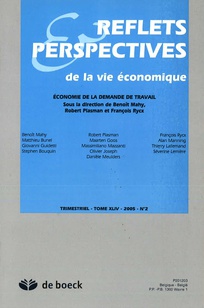
Rycx, François; Mahy, Benoît & Plasman, Robert (2005)
International Journal of Manpower, double special issue, 26(7/8), 611-749.
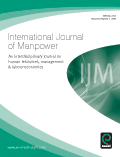
in Rycx, François; Meulders, Danièle & Plasman, Robert (Eds) (2004)
Palgrave Macmillan, 2004, 248 p.
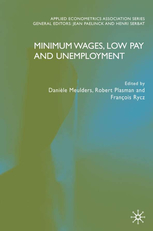
Rycx, François & Tojerow, Ilan (2004)
International Journal of Manpower, 25(3-4), 279-299.
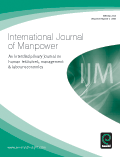
Rycx, François; Meulders, Daniièle & Plasman, Robert (2004)
International Journal of Manpower, double special issue, 25(3-4), 239-377.
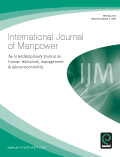
Rycx, François; Meulders, Danièle & Plasman, Robert (2003)
International Journal of Manpower, 24(4), 323-491.
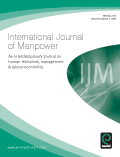
Rycx, François & Tojerow, Ilan (2002)
Brussels Economic Review, 45(2), 119-141.
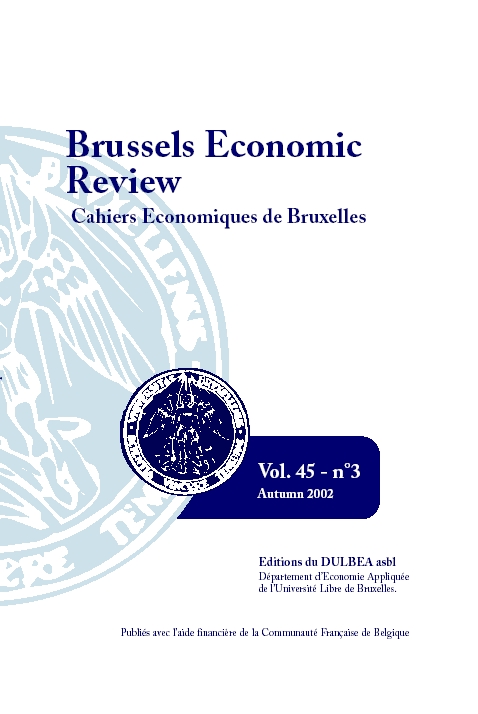
Rycx, François; Meulders, Danièle & Plasman, Robert (2002)
Brussels Economic Review, special issue, 45(2), 2-246.
